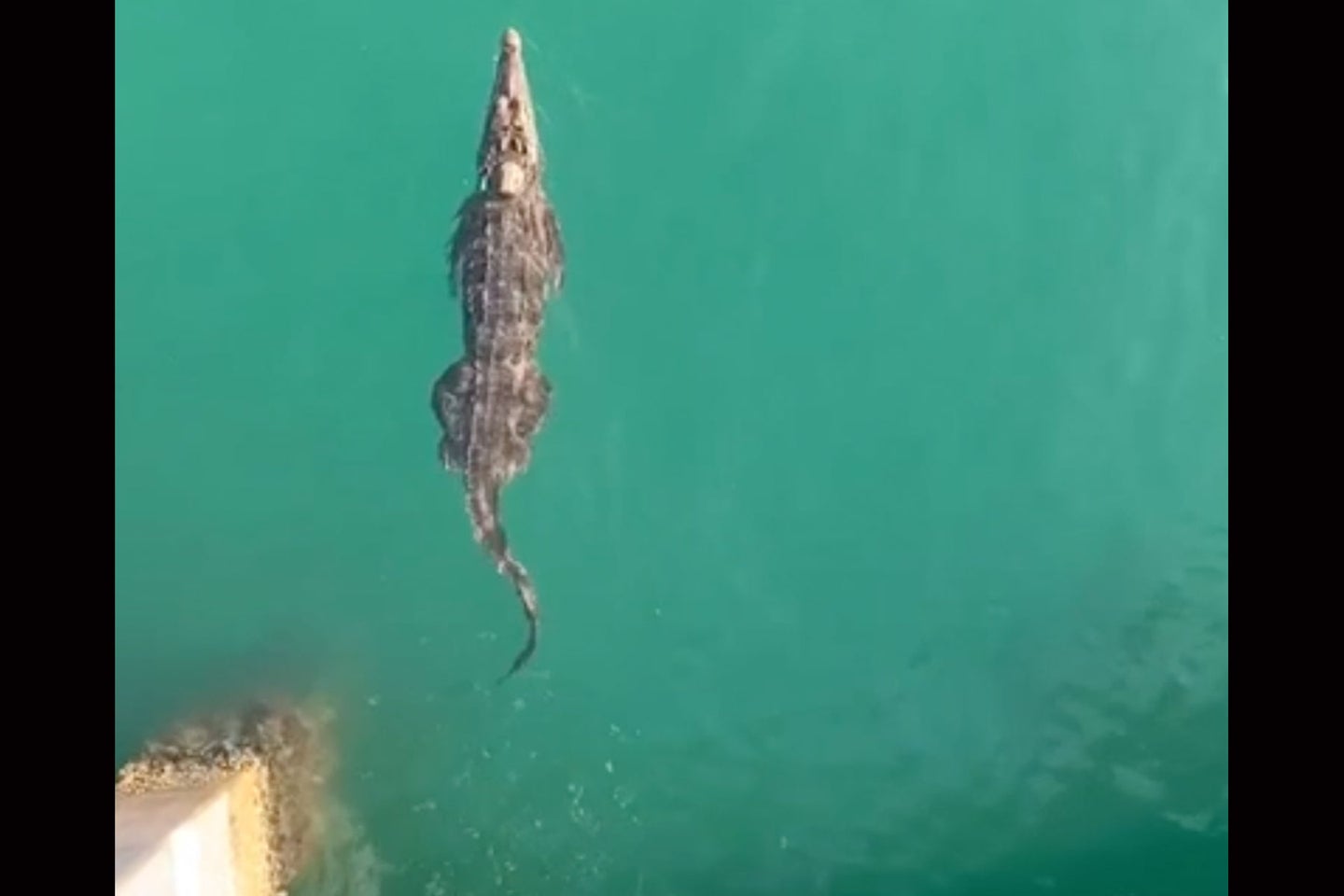Watch: 9-Foot Crocodile Shuts Down South Florida Beach

A crocodile caused quite a stir in the town of Pompano Beach, Florida earlier this week. The 9-foot reptile was filmed by a concerned onlooker on Wednesday before sending a group of lifeguards swimming for the safety of the shore and prompting officials to shut the popular beach down for the day. Watch the footage for yourself below.
According to USA Today, a woman yelled out to warn the lifeguards, who were enjoying a morning swim, when the crocodile showed up. Those in the front of the group saw and heeded her warnings and alerted a man who was in the back of the pack, closer to the croc. All of the swimmers made it out of the ocean unscathed.
“The lifeguards are trained for any emergency like a shark or runaway boat, but in this case it was a crocodile!” city spokesperson Sandra King later told USA Today. “They had never experienced something like this before, but they knew what to do.”
American crocodiles inhabit the south Florida coast, the Florida Keys, and the Caribbean Sea—along with parts of Mexico and Central and South America. While they’re occasionally encountered in Florida’s canal systems and other inland freshwater areas, they prefer to hang out in brackish or saltwater ponds, coves, and creeks running through mangrove swamps.
Unlike their more common cousin, the American alligator, American crocs have sharply tapered snouts. And they’re usually lighter in color than gators, which almost appear black from a distance.
Read Next: Tennessee Family Wins $10,000 Prize After Killing 20 Pythons in the Florida Everglades
The Florida Fish and Wildlife Conservation Commission (FWC) describes the species as a conservation success story. “Listed as an endangered species in 1975, crocodile numbers have since recovered from a few hundred individuals to as many as 2,000 adult crocodiles today,” the FWC states on its website. “The Florida population of this native species is now classified as threatened by the U.S. Fish and Wildlife Service.”
The post Watch: 9-Foot Crocodile Shuts Down South Florida Beach appeared first on Field & Stream.
Articles may contain affiliate links which enable us to share in the revenue of any purchases made.
